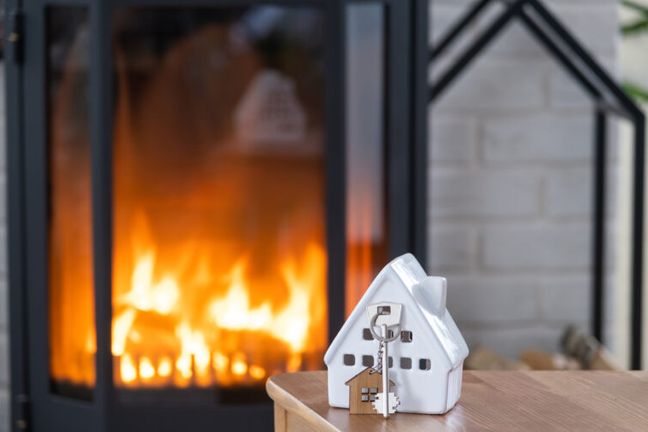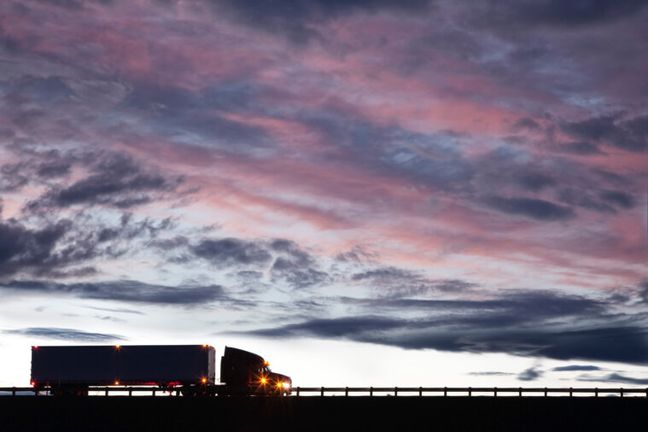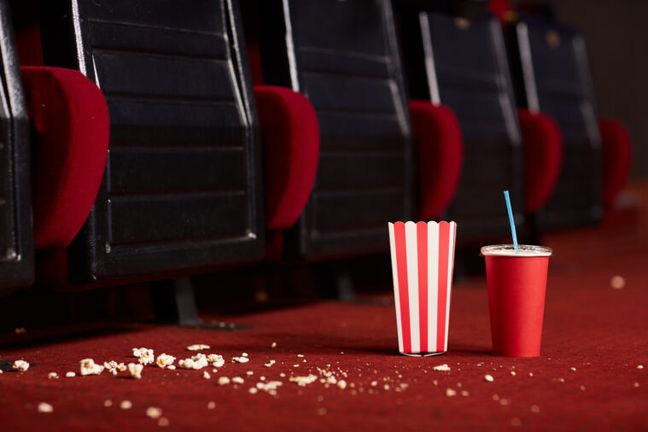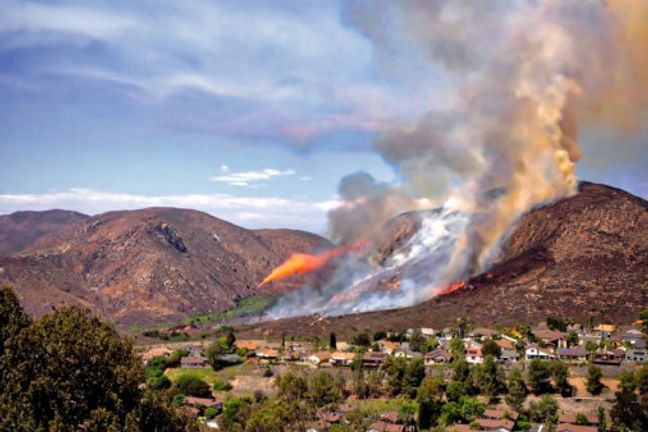Introduction
The Second District Court of Appeal of the of California has again[i] affirmed a no-coverage ruling for an insurer against COVID-19-induced business interruption coverage. In Endeavor v. HDI Global, decided on September 21, 2023, the court reiterated the “ephemeral existence of COVID-10 or its predecessor virus on property does not constitute ‘direct physical loss or damage to property’ as a matter of law.”[ii]
The Facts
Endeavor Operating Company, LLC (“Endeavor”) is a holding company which owns subsidiary entities including IMG Events, IMG Media, IMG Academy, and William Morris Endeavor Entertainment, LLC.[iii] Together, these subsidiaries encompass sports leagues like Professional Bull Riders, World Wresting Entertainment and the Ultimate Fighting Championship and host major events such as Wimbledon and New York Fashion Week.[iv] Each of these leagues and events were temporarily shut down due to the COVID-19 pandemic in 2020 and 2021.[v] Accordingly, Endeavor suffered financial losses as a result and sought coverage under its commercial property insurance policy, which included business income and extra expense coverage (colloquially referred to as “business interruption coverage.”)[vi]
Endeavor’s business interruption coverage provided recovery for “all risk of direct physical loss or damage to property.”[vii] However, words such as “loss” or “damage” were not defined in the policy.[viii] Endeavor made the claim, like many others with similar policy language, that each business and event suffered insurable “damage” from COVID-19 particles during the policy period.[ix] Endeavor contended that the inherent properties of the COVID-19 virus bonded to surfaces which caused “adverse physical alteration to property.”[x]
Despite this claim, no evidence was obtained by Endeavor or its insurer, HDI Global, that COVID-19 particles existed on the subject property.[xi] Turning to the word “loss,” Endeavor also claimed it suffered recoverable economic loss because of the forced cancellation of each league or event due to government orders.[xii] Unlike the previous argument, no existence of COVID-19 particles was necessary to prove financial loss given the unilateral enforcement of the orders.[xiii]
The court was not persuaded. Like virtually all other California appellate courts presented with the same issues and arguments, the court echoed the same reasoning. First, the damage argument failed to account for the fact that viruses are easily removed “with a simple cleaning of the surface.”[xiv] And for the remaining particles left undisturbed, they did not pose a threat of permanent property alteration given the virus’s half-life when exposed.[xv] Second, the court referenced a majority of other California courts which have held that loss of use alone leading to financial injury is not cognizable to satisfy the standard of “physical loss.”[xvi] In other words, the preceding term “physical” means that some physical alteration is required for the term “loss” to be cognizable.[xvii] Together, both of Endeavor’s arguments fell flat against the overwhelming weight of persuasive precedent.
Endeavor also lofted the novel argument that the word “event” in policy’s civil authority and ingress/egress clauses effectively eliminated the direct physical loss or damage requirement noted above.[xviii] The policy provided separate clauses to “insure loss sustained during the period of time when, as a result of loss, damage or an event not excluded [by one of the policy’s enumerated exclusions,] access to property is impaired by order or action of civil or military authority” (the civil authority clause (Italics added.)[xix] And “to insure loss sustained during the period of time when, as a result of loss, damage or an event not excluded [by one of the policy’s enumerated exclusions], ingress to or egress from real or personal property is impaired” (the ingress/egress clause) (Italics added.)[xx]
Accordingly, Endeavor argued that that:
(1) those clauses should “extend[]” the policy “to insure loss sustained during the period of time when, as a result of loss, damage or an event not excluded [by any of the policy’s enumerated exclusions],” either “access to property is impaired by order or action of civil . . . authority” or “ingress to or egress from real or personal property is impaired” (italics added);[xxi] (
2) the clauses’ use of the term of “event” as a distinct alternative to “loss” or “damage” means that the insured loss need not be preceded by any “loss” or “damage”; and
(3) an “event” includes the COVID-19 pandemic, such that any losses stemming from a civil authority order or denial of access are covered even if there is no direct physical loss or damage to property.[xxii]
The court disagreed, noting the use of “event” in the policy’s definition of “occurrence” – which ties it to a “loss.”[xxiii] While Justice Brian M. Hoffstadt acknowledged this interpretation “robs the word ‘event’ of any independent meaning within the phrase loss, damage[,] or an event’ in the two clauses at issue,” he said the policy makes more sense this way.[xxiv]
Reading the inclusion of the word “event” to eliminate any predicate showing of direct physical loss or damage to property altogether “would effectively rob several other provisions applicable to the civil authority and ingress/egress clauses of any meaning” in violation of contract interpretation principles.[xxv]
Conclusion
Ultimately, the question of what constitutes “direct physical loss or damage” under an insurance policy governed by California will have to be decided by the California Supreme Court. It has the final say on California law. And after three years of insurance claims and litigation, the California Supreme Court has agreed to provide guidance on one of the main arguments that insurers make when rejecting COVID-19 business interruption claims. In Another Planet Entertainment, LLC v. Vigilant Insurance Co., S277893, the state’s highest court will address the question of whether under California law the actual or potential presence of SARS-CoV-2 on insured property can qualify as physical loss of or damage to property.
The outcome of the California Supreme Court’s review is likely to take one of the following forms:
(1) the actual or potential presence of SARS-CoV-2 is “direct physical loss or damage to property”;
(2) the actual or potential presence of SARS-CoV-2 is not “direct physical loss or damage to property”;
(3) the actual or potential presence of SARS-CoV-2 is “direct physical loss or damage to property” and the plaintiff has satisfied its requirements at the pleading stage; or
(4) the actual or potential presence of SARS-CoV-2 is “direct physical loss or damage to property” but the plaintiff has not satisfied its requirements at the pleading stage.
At the time of publication, nearly every federal circuit and nearly all state supreme courts have considered these issues and have held that loss of use caused by closure orders issued in response to the COVID-19 pandemic does not constitute physical loss or damage sufficient to trigger property insurance coverage.[xxvi] Additionally, most California state appellate courts have likewise found no coverage. Therefore, a ruling by the final arbiter of California law that the actual or potential presence of SARS-CoV-2 is “direct physical loss or damage to property” would be a landmark decision for countless California policyholders.
Keep Reading
More by this author
Sources
[i] Frasher, Samuel. That’s a Wrap: California Appellate Court Shutters Theater Chain’s COVID-19 Business Interruption Bid, June 12, 2023, https://www.tysonmendes.com/thats-a-wrap-california-appellate-court-shutters-theater-chains-covid-19-business-interruption-bid/.
[ii] Endeavor Operating Co., LLC v. HDI Global Insurance Co., et al., No. B323865 (Cal. Ct. App. Sept. 23, 2023).
[iii] Id. at 4.
[iv] Id.
[v] Id. at 9
[vi] Id.
[vii] Id. at 5.
[viii] Id.
[ix] Id. at 9.
[x] Id.
[xi] Id. at 9.
[xii] Id.
[xiii] Id.
[xiv] Id. at 14.
[xv] Id.
[xvi] Id.
[xvii] Id.
[xviii] Id.
[xix] Id. at 15.
[xx] Id.
[xxi] Id. at 15.
[xxii] Id. at 19-20.
[xxiii] Id.
[xxiv] Id. at 22.
[xxv] Id. at 23.
[xxvi] See Legal Sea Foods, LLC v. Strathmore Ins. Co., 36 F.4th 29 (1st Cir. 2022); 10012 Holdings, Inc. v. Sentinel Ins. Co., 21 F.4th 216 (2d Cir. 2021); Wilson v. USI Ins. Serv. LLC, 57 F.4th 131(3d Cir. 2023); Uncork & Create LLC v. Cincinnati Ins. Co., 27 F.4th 926 (4th Cir. 2022); Terry Black’s Barbecue, L.L.C. v. State Auto. Mut. Ins. Co., 22 F.4th 450 (5th Cir. 2022); Santo’s Italian Café LLC v. Acuity Ins. Co., 15 F.4th 398 (6th Cir. 2021); Sandy Point Dental, P.C. v. Cincinnati Ins. Co., 20 F.4th 327 (7th Cir. 2021); Oral Surgeons, P.C. v. Cincinnati Ins. Co., 2 F.4th 1141 (8th Cir. 2021); Mudpie, Inc. v. Travelers Cas. Ins. Co. of Am., 15 F.4th 885 (9th Cir. 2021); Goodwill Indus. of Central Okla., Inc. v. Phila. Indem. Ins. Co., 21 F.4th 704 (10th Cir. 2021); Gilreath Family & Cosmetic Dentistry, Inc. v. Cincinnati Ins. Co., No. 21-11046, 2021 WL 3870697 (11th Cir. Aug. 31, 2021); Wakonda Club v. Selective Ins. Co. of Am., 973 N.W.2d 545 (Iowa 2022); Tapestry, Inc. v. Factory Mut. Ins. Co., No. 1 Sept. Term, 2022, 2022 WL 17685594 (Md. Dec. 15, 2022); Verveine Corp. v. Strathmore Ins. Co., 184 N.E.3d 1266 (Mass. 2022); Neuro-Commc’n Servs., Inc. v. Cincinnati Ins. Co., No. 2021-0130, 2020 WL 17573883 (Ohio Dec. 12, 2022); Cherokee Nation v. Lexington Ins. Co., No. 119,359, 2022 WL 4138429 (Okla. Sept. 13, 2022); Sullivan Mgmt., LLC v. Fireman’s Fund Ins. Co., No. 2021-001209, 2022 WL 3221920 (S.C. Aug. 10, 2022); Hill & Stout, PLLC v. Mut. of Enumclaw Ins. Co., 515 P.3d 525 (Wash. 2022) (en banc); Colectivo Coffee Roasters, Inc. v. Soc’y Ins., 974 N.W.2d 442 (Wis. 2022); but see Huntington Ingalls Indus., Inc. v. Ace Am. Ins. Co., No. 2021-173, 2022 WL 4396475, at *11 (Vt. Sept. 23, 2022) (holding that a complaint that alleged COVID-19 adhered to and altered property survived judgment on the pleadings under Vermont’s “extremely liberal” pleading standard).

 Author: Samuel Frasher
Author: Samuel Frasher
 Editor: Grace Shuman
Editor: Grace Shuman
 Cannabis Workers Allege Quota to Trim 4 Pounds a Day Violates the California Labor Code
Cannabis Workers Allege Quota to Trim 4 Pounds a Day Violates the California Labor Code
 The Ninth Circuit Reminds Us: Every Word Matters
The Ninth Circuit Reminds Us: Every Word Matters
 NO WAY, PRO SE! The Consequences of Abusing the Judicial System as a Pro Se Litigant in Colorado
NO WAY, PRO SE! The Consequences of Abusing the Judicial System as a Pro Se Litigant in Colorado
 Victim of Financial Mismanagement or Unlawful Retaliation? New Jersey City University Program Founder Claims School Retaliated After Reporting Alleged Sexual Harassment
Victim of Financial Mismanagement or Unlawful Retaliation? New Jersey City University Program Founder Claims School Retaliated After Reporting Alleged Sexual Harassment
 “Real Housewives” Gets a Reality Check
“Real Housewives” Gets a Reality Check
 Missing a Chapter: Insufficiency of Expert Deposition Testimony in Medical Malpractice Litigation
Missing a Chapter: Insufficiency of Expert Deposition Testimony in Medical Malpractice Litigation
 Crash Course: Why Summary Judgment Misses the Mark in Illinois Multi-Cause Limousine Crash Collision
Crash Course: Why Summary Judgment Misses the Mark in Illinois Multi-Cause Limousine Crash Collision
 Bitter Truths: Lead, Cadmium, and Defective Pleadings in California Chocolate Class Action
Bitter Truths: Lead, Cadmium, and Defective Pleadings in California Chocolate Class Action
 The Law of Unintended Consequences: Including Insurance Brokers in Litigation Strategy Communication May Waive the Attorney-Client Privilege
The Law of Unintended Consequences: Including Insurance Brokers in Litigation Strategy Communication May Waive the Attorney-Client Privilege
 Modern Headache: Actress Sofia Vergara is Sued for $1.7 Million by Former Contractor
Modern Headache: Actress Sofia Vergara is Sued for $1.7 Million by Former Contractor
 Up In Smoke: Insurer Sues Landlord For Failure to Obtain Liability Insurance from Tenant
Up In Smoke: Insurer Sues Landlord For Failure to Obtain Liability Insurance from Tenant
 The Truck Stops Here: Dispute Over Trucking Company’s Liability Makes Its Final Stop at the Ninth Circuit
The Truck Stops Here: Dispute Over Trucking Company’s Liability Makes Its Final Stop at the Ninth Circuit
 You’re It: California Federal Court Tags Insurer to Defend in Habitability Case
You’re It: California Federal Court Tags Insurer to Defend in Habitability Case
 That’s a Wrap: California Appellate Court Shutters Theater Chain’s COVID-19 Business Interruption Bid
That’s a Wrap: California Appellate Court Shutters Theater Chain’s COVID-19 Business Interruption Bid
 Out of This World! California Supreme Court Agrees to Review COVID-19 Business Interruption in Another Planet Ent., LLC
Out of This World! California Supreme Court Agrees to Review COVID-19 Business Interruption in Another Planet Ent., LLC
 Trial and No Error: California Jury Shows the Good that Can Come from Effective Defense Strategies
Trial and No Error: California Jury Shows the Good that Can Come from Effective Defense Strategies
 California Federal Court Maintains Broad Duty of Insurer to Defend
California Federal Court Maintains Broad Duty of Insurer to Defend